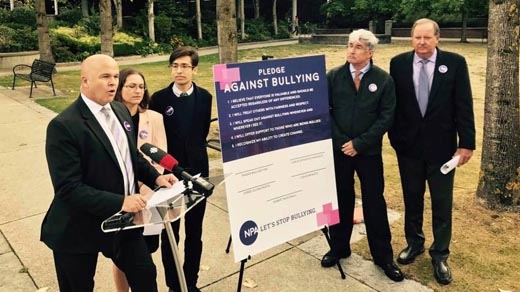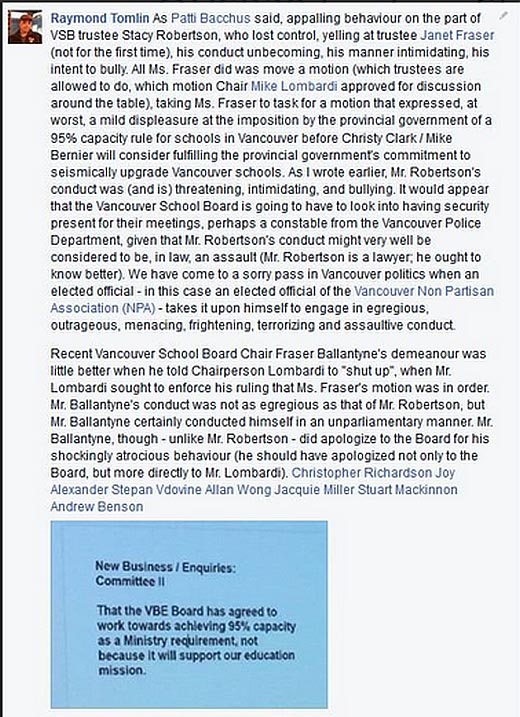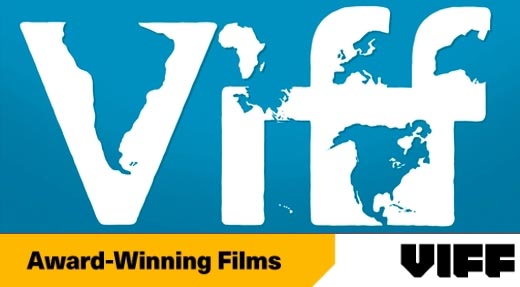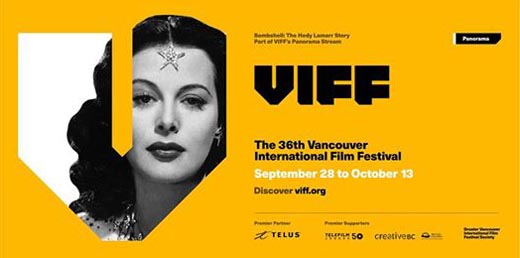
In her report on governance of the Vancouver School Board submitted to the public in February of this year, Vancouver-based lawyer Roslyn Goldner — who was commissioned by the then Acting VSB Superintendent, Steve Cardwell to conduct an investigation, following a complaint from the president of the BC School Superintendents Association respecting allegations of a toxic VSB administrative work environment, and the alleged harassment and bullying of administrative staff by trustees — Ms. Goldner identified the core issue at the heart of democratic school board governance, and the upcoming October 14th Vancouver VSB by-election.
“VSB Trustees hold differing views as to their role. Trustees have espoused either an advocacy model (ed. note: Vision Vancouver) in which they define the role as representing the views of their constituents in the District, or a stewardship model (ed. note: the Non-Partisan Association) which more closely aligns with the view of the British Columbia School Trustees Association (BCSTA).”
When — what is bound to be a too small contingent of — voters go to the polls on October 14th to elect a new 9-member team of Vancouver School Board trustees, the issue of advocacy vs (an unthinking) maintenance of the (too often corrupt, and anti-democratic) status quo will, should and must be at the centre of voters’ thinking when they cast their VSB ballot.

Almost the entire stand pat (“we’re the provincial Liberal farm team and we sure as heck intend to give the BC NDP government in Victoria the gears”) platform of the Vancouver Non-Partisan Association School Board candidates revolves around the hypocritical notion of an anti-bullying policy they intend to ensure is enacted by outgoing, Liberal government-appointed VSB trustee Dianne Turner (who was anti-democratically appointed as the sole VSB trustee last October when the then VSB Board of Education trustees were fired by Minister of Education, Mike Bernier) and new, incoming VSB Board of Education trustees. Note: Ms. Turner was recently appointed to a one-year term as ‘special advisor’ to the Vancouver School Board, by current BC NDP Minister of Education, Rob Fleming.
Why hypocritical? Although there was no reference made by Ms. Goldner in her report respecting the egregious and untoward conduct of the then sitting NPA Board of Education trustees, VanRamblings was present for all of the main Board meetings of the Vancouver School Board, from December 2014 through September 2016 — and we are here to report that it was the Vancouver Non-Partisan Association Board of Education trustees who consistently engaged in bullying conduct toward their colleagues, and not (read: not) either Green Party Board of Education trustee Janet Fraser, or any (any) of the elected Vision Vancouver Board of Education trustees.

In the last term, although matters commenced well in late 2014, by March 2015 the Vancouver Non-Partisan Association (NPA) Board of Education trustees became so incensed at the Vision Vancouver trustees’ parent and student advocacy that the conduct around the VSB table became so heavily pro-Peter Fassbender (then, the BC Liberal government Minister of Education) — who, in the estimation of the NPA trustees could do no wrong (ardent NPA support for then Premier Christy Clark was equally vocal) — that reasonable discussion at the VSB table became all but impossible.
Although VanRamblings believes current NPA school board candidates Rob McDowell and Christopher Richardson to be men of honour and integrity (we possess immense respect for both gentlemen), and although we have heard nothing but positive commentary on NPA School Board candidate Lisa Dominato — the well-respected Ministry of Education Director of Integrated Services and Safe Schools in the recent provincial Liberal government — and we are impressed with the well-spoken, articulate and very bright Julian Prieto — graduate of the University of Toronto / University of Oxford — and believe that each one of these fine individuals has a contribution to make, let there be no mistake, the Vancouver Non-Partisan Association (NPA) School Board candidate team constitute an arm of the B.C. provincial Liberal party, whatever their otherwise good intentions.
British Columbians residing in the urban areas of our province, and in Vancouver in particular, elected a progressive, education-friendly BC NDP government on May 9, 2017. What does that mean for public education?
VanRamblings believes that the electorate wishes to give our new provincial government the opportunity to implement ‘change for the better’ in our too long beleaguered education system — an expedited plan for the seismic upgrading / replacement of older schools, an expedited plan for new school construction, better and more consistent funding of education, support for adult basic education, programmes and substantial monies directed toward the education of First Nations students (note: for 16 years, the BC Liberal government took $58.3 million dollars of funding out of the Vancouver School Board budget each year, which circumstance changed only with the ruling of the Supreme Court last November) — and so much more.
The very last thing parents with students enrolled in the Vancouver school system want is for Vancouver Board of Education trustees to play politics with their children’s education. Parents and educators want to see the implementation of education programmes that enhance student outcomes, and seek to provide opportunity for all students enrolled in the Vancouver school system. Elect the Vancouver Non-Partisan Association (NPA) School Board candidates, and we risk partisan politics trumping student interests.

From l – r, the entirely tremendous Vision Vancouver school board candidate ‘public education advocacy’ team: newcomer to electoral politics Theodora Lamb, former VSB Chair Mike Lombardi, Ken Clement, Joy Alexander and Allan Wong, each one of whom deserve your vote October 14th.
Make no mistake, it was the Vision Vancouver Board of Education trustees who were the only Vancouver School Board trustees in the last term and in the previous two terms who advocated for the interests of students, who fought against the closure of Vancouver schools (and thank God for that, given the current shortage of classrooms resultant from last November’s Supreme Court ruling), who advocated for funding for: aboriginal education, adult basic education, preservation of elementary school band programmes, maintenance of staff for each of the VSB LGBT, anti-racism and anti-homophobia mentor positions, and fought long and hard not to kowtow to the anti-education government of former Premier Christy Clark, and her partisan Education Ministers Peter Fassbender and Mike Bernier.
In the last term, the NPA Board of Education trustees fought against all ‘non-core’ programmes, and simply rolled over when it came time to implement and pass a budget that would for the 15th consecutive year take tens of millions of dollars out of the Vancouver school system. Bad enough that an entire generation of students enrolled in the Vancouver school system were not given access to English as Second Language, learning disability, speech language pathologist, and library teachers. Worse still: that the Vancouver Non-Partisan Association members of the Vancouver School Board acted as apologists for a government that was only too ready to increase funding for private school education from $66 million annually to $354 million, all at the expense of the funding of public education.
 From l – r, OneCity Vancouver’s Carrie Bercic and Erica Jaaf, and COPE Vancouver’s Diana Day
From l – r, OneCity Vancouver’s Carrie Bercic and Erica Jaaf, and COPE Vancouver’s Diana Day
OneCity’s Carrie Bercic and Erica Jaaf, and COPE Vancouver’s Diana Day are three more must-elects running for a position on the Vancouver School Board, each one of them well-experienced public education advocates. Carrie attended every Vancouver School Board meeting in 2014, 2015 and 2016, and along with her longstanding Parent Advocacy Network ‘public education advocate’ colleague, Erica Jaaf, have emerged in recent years as two of the strongest public education advocacy voices in British Columbia.
Diana Day, an Indigenous First Nations from the Oneida Nation, graduated with an Honours B.A. in Psychology from the University of Windsor, and has worked as a leader in Aboriginal health, public education and community engagement over the past decade, and sits as Chair of the Vancouver Technical Secondary Schools’ Parent Advisory Council (PAC), where her daughter Angeline is currently enrolled as a Grade 12 honours student.
“I have had the privilege of working alongside Diana Day in her capacity as executive on the Vancouver District Parent Advisory Council and want to ask you to save a vote for her as a COPE Vancouver School Board by-election candidate. Ms. Day is a skilled facilitator with a passion for equity and looking out for our most vulnerable students and families. She brings a warmth and humour to her position while being firm, clear and focused. Diana Day is an effective advocate and an empathetic listener and will make an excellent Trustee.” — Claudia Ferris, Vancouver District Parent Advisory Council (DPAC) Media Coordinator
The single most frequent issue to come before the Vancouver School Board? Aboriginal education. Funding, resources, preservation or expansion of existing programmes for First Nations students enrolled in the Vancouver school system, liaison with the federal and provincial governments, First Nations student achievement (that while improving continues to be regrettably and woefully low), and protection of the interests of indigenous children enrolled in Vancouver’s school system, among a myriad of other concerns and interests. There is no more passionate and informed advocate of and voice for First Nations students than Diana Day — a vote for COPE Vancouver’s Diana Day on October 14th is an absolute imperative.
All of us need to hear Diana’s voice at the Vancouver School Board table.

Update: Gleaned from former Chair of the Vancouver School Board Patti Bacchus’ latest public education column in The Straight, “Voters will get a couple of chances to hear candidates talk more about their promises and plans at a couple of upcoming candidate forums.
The first VSB by-election candidate meeting will be held by the Institute for Public Education, 7:30 p.m., Oct. 2nd at the Trout Lake Community Centre.
The second VSB candidate meeting is set to be held at 6:30 p.m. the following evening, October 3rd, and it’s being held by the Vancouver District Parents’ Advisory Council, at John Oliver secondary school.


